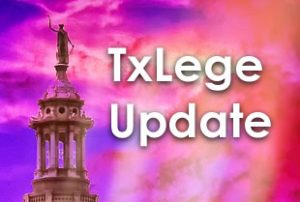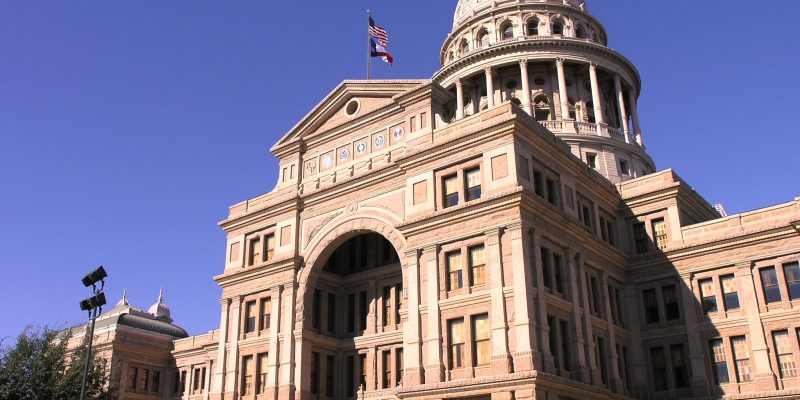 As a Senate committee was gathering to analyze the possible causes of an uptick in mass shootings on Thursday, Lt. Gov. Dan Patrick released his biennial list of Interim Charges.
As a Senate committee was gathering to analyze the possible causes of an uptick in mass shootings on Thursday, Lt. Gov. Dan Patrick released his biennial list of Interim Charges.
Interim charges — items for Texas legislators to consider and report on between sessions (the Texas Legislature meets every other year) — come from the Lieutenant Governor for state Senate committees and the Speaker for House committees. With Speaker Dennis Bonnen‘s fate in question, it is unclear when (or if) the House committtees will receive their orders.
At least one of the Senate interim charges pertains to Thursday’s mass violence hearing: to monitor how well SB 11 has performed which implemented “policies, procedures, and measures for school safety and mental health promotion in public schools and the creation of the Texas Child Mental Health Care Consortium.” Other related charges cover gang violence prevention, anti-hazing legislation, and changes to capital murder criteria.
Interim charges can be used in a variety of ways to prime the pump for an upcoming session.
Charges can be used to highlight difficulties brought about by recently passed legislation, such as a charge related to HB 11 which has apparently resulted in 10-hour workdays for border enforcement personnel and declining morale and work conditions.
Interim charges may also be used to satisfy (or counter) the concerns of various lobbies and special interests without necessarily recommending that legislation be passed. With that in mind, not every charge is a call for reforms in the next legislature but an opportunity for legislators to make a better-informed case, pro or con.
And then there’s the cut-and-dry business of being legislators: most of these charges are follow-ups on bills from previous sessions as well as updates on important topics such as water supply, traffic safety, and crime accompanied by statistical charts and reams of data tables. Interim hearings make for less-dramatic opportunities for these topics to be addressed by legislators, the lobby, and the general public.
We summarize the interim charge topics below. Full list here.
Business and Commerce committee: cybersecurity, aerial drone regulations, electric grid reliability and innovations, and health care costs. The committee is also charged with monitoring the implementation of newly passed laws concerning broadband expansion, and out-of-network medical billing consumer protections.
Criminal Justice committee: evaluation of victim services (sex crimes, human trafficking, domestic violence, etc.), vaping and teens, gang violence prevention, and the enforcement of laws designed to help students with disabilities. The committee is also charged with monitoring the implementation of newly passed laws concerning hazing, changes to capital murder criteria, and intoxication charges probation.
Education committee: teacher training versus student outcomes, alternative education models, adult education (GEDs, workforce certifications, etc.), disciplinary education, virtual schools, and special education via the TEA’s corrective action plan. The committee is also charged with monitoring the implementation of newly passed laws concerning school safety, mental health in schools, gifted and talented allotments, and using technology in the classroom.
Finance committee: Teacher retirement pensions, state agency technology and efficiency, a review of performance-based contracting, spending limits, creating an inventory of college and university research programs, evaluating business and property taxation, and a review of natural disaster funding including community block grants. The committee is also charged with monitoring the implementation of newly passed laws concerning the above, in addition to evaluating the implementation of a teacher pay increase.
Health and Human Services committee: health care costs and Medicaid waivers, heart disease prevention, health effects of vaping, the state of rural health care, and a review of family protective practices and child welfare. The committee is also charged with monitoring the implementation of newly passed laws concerning the above, and also the opioid drug crisis, medical transportation, pregnancy-related deaths, and Medicaid cost-containment.
Advertisement
Higher Education committee: a review of the community college offerings of dual credit and distance learning, data transparency between state agencies, public schools, and higher ed institutions, facilities, non-traditional students, and a review of formula funding especially for health institutions. The committee is also charged with monitoring the implementation of newly passed laws concerning student loan repayments for law enforcement officers and math/science teachers, graduation rates, work-study apprenticeships, and college textbook affordability.
Intergovernmental Relations committee: a review of low-income housing programs and the role of special purpose districts in mitigating floods in residential areas. The committee is also charged with monitoring the implementation of newly passed laws concerning ETJ landowner rights, private activity bonds, and disaster assistance simplification.
Natural Resources and Economic Development/Water and Rural Affairs committees: tax abatements and grants, eminent domain for oil and gas, water supply availability including groundwater supplies, and a review of river authorities powers. The committee is also charged with monitoring the implementation of newly passed laws concerning expedited disaster recovery, water utility rate-making reforms, permit revocation reforms, hemp regulations, and terrorist attacks on “critical infrastructure.”
Property Tax committee: The committee is charged with monitoring the implementation of newly passed laws concerning SB 2, last session’s hallmark property tax reform package.
State Affairs committee: human trafficking awareness and law enforcement tools, election integrity and staffing, religious conscience protections for state-licensed professionals, personal data privacy in state agencies, taxpayer funded lobbying, a review of fetal heartbeat and other pro-life reforms, a review of various Second Amendment reforms and fees, prosecution of property theft under $1,000, and various lobbyist reporting loopholes. The committee is also charged with monitoring the implementation of newly passed laws concerning court costs and a taxpayer-funded abortion ban (SB 22).
Transportation committee: traffic safety statistics and strategies, major roadway progress, evaluation of state agency flight services. The committee is also charged with monitoring the implementation of newly passed laws concerning driver’s licensing funding to comply with federal regulations, county roadway repairs, toll project payments, whether to move driver licensing from DPS to the DMV, two-way directional roads, and Harris County pilot commissioners.
Veteran Affairs and Border Security committee: review of moving veterans from the criminal justice system to a newly created veterans treatment court system, veteran health care and mental health, a review of fusion centers as it pertains to trans-national criminal activity, and border security technology. The committee is also charged with monitoring the impelentation of newly passed laws concerning ten-hour workdays for border enforcement personnel as a result of HB 11 and its effects (note: judging by the wording, Patrick is not happy about this at all).
Advertisement
Advertisement

